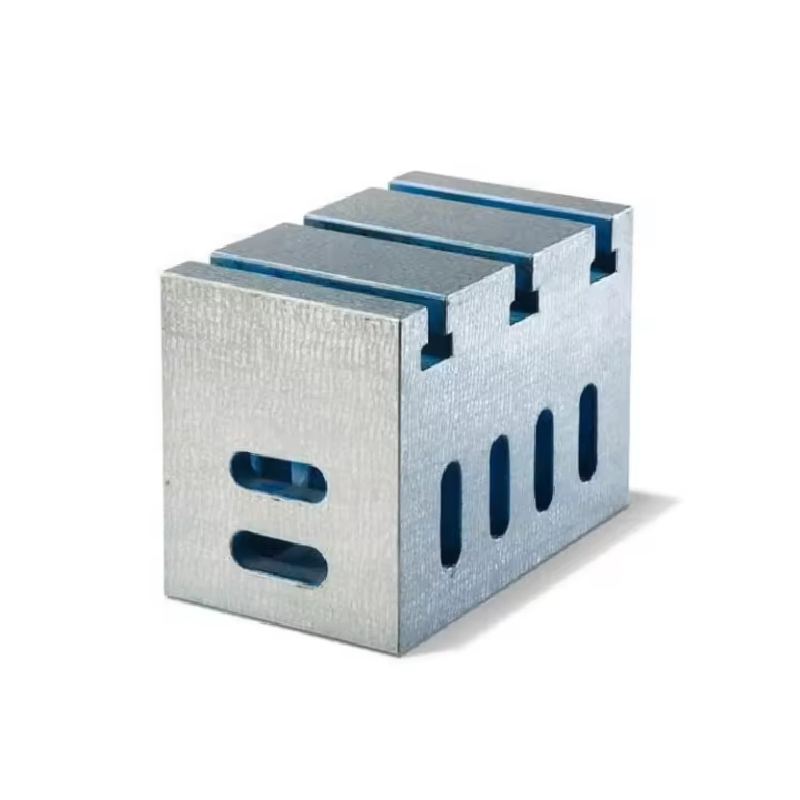pro . 16, 2024 06:05 Back to list
Understanding JIS Standards for Thread Plug Gauges and Their Applications
Understanding the Thread Plug Gauge and JIS Standard
In the world of precision machining and quality control, ensuring that threaded components meet established specifications is vital for performance and reliability. One of the essential tools in this process is the thread plug gauge, which is commonly used to check the internal threads of a workpiece. In Japan, the Japanese Industrial Standards (JIS) provide guidelines for these gauges, ensuring consistency and quality across industries.
What is a Thread Plug Gauge?
A thread plug gauge is a cylindrical tool designed to measure the acceptance of internal threads in components such as nuts and tapped holes. It is typically made of high-strength steel and features a male threaded section that matches the dimensions of the threads being tested. The gauge comes in two main forms the go gauge and the no-go gauge. The go gauge is used to check whether the internal thread can accept a mating component, while the no-go gauge ensures that the thread does not exceed specified tolerances.
The Importance of Thread Gauges
Using thread plug gauges is crucial for ensuring the interchangeability of parts, which is a key factor in manufacturing. If the threads of a component are out of specification, it can lead to assembly issues, reduced functionality, and potential failures. Therefore, regular use of thread gauges helps maintain quality control and enhances the overall reliability of mechanical assemblies.
JIS Standards and Their Relevance
The Japanese Industrial Standards (JIS) emerged post-World War II as a way to standardize industrial practices in Japan, ensuring that products meet a consistent level of quality. The JIS standards for thread gauges cover various aspects, including dimensions, tolerances, and manufacturing processes. These standards are crucial for companies aiming to export goods to Japan or engage in international trade, as adherence to JIS can open up markets and increase consumer trust.
A precise understanding of the JIS standards related to thread plug gauges helps manufacturers ensure that their products meet the stringent requirements of the Japanese market. For example, the sizes and tolerances specified in the JIS outline precise measurements for Unified threads, Metric threads, and more specialized forms of thread forms. This standardization facilitates clearer communication between manufacturers and suppliers, reducing errors and boosting efficiency.
thread plug gauge jis standard

Choosing the Right Thread Plug Gauge
When selecting a thread plug gauge, it’s essential to consider several factors, including
1. Thread Type Different applications might require specific types of threads (e.g., metric or imperial). Ensuring the gauge matches the thread type is critical.
2. Material and Durability Given that gauges face continuous use, selecting high-quality materials is vital for maintaining performance over time.
3. Calibration It is essential to calibrate gauges regularly to adhere to testing accuracy. The process should follow JIS or other international standards to maintain reliability.
4. User Training Proper training for operators on how to use and interpret the results from thread plug gauges is necessary for achieving accurate quality control.
5. Quality Assurance Procedures Establishing clear standards for monitoring and evaluating gauge performance can significantly enhance overall product quality.
Conclusion
In conclusion, the thread plug gauge is an indispensable tool in the quality control process within manufacturing industries, especially for those dealing with threaded components. The adherence to JIS standards ensures that these gauges meet quality and performance expectations, thereby supporting manufacturers in producing reliable products. By understanding the specifications and the importance of these gauges, companies can improve their quality assurance processes, minimize production issues, and ultimately deliver superior products to the market. Embracing such standards not only enhances operational efficiency but also fosters customer satisfaction and trust in their products. In an increasingly globalized economy, aligning with recognized standards like JIS becomes more critical than ever for businesses striving to compete effectively.
-
thread-plug-gauge-our-promise-of-measurement-excellenceNewsAug.22,2025
-
gauge-pin-class-reflecting-quality-legacyNewsAug.22,2025
-
check-valve-types-for-high-rise-buildingsNewsAug.22,2025
-
water-control-valve-for-irrigation-systemsNewsAug.22,2025
-
gate-valve-with-soft-seal-technologyNewsAug.22,2025
-
y-type-strainer-for-oil-and-gas-applicationsNewsAug.22,2025
Related PRODUCTS









